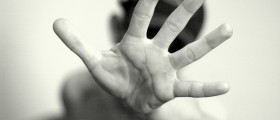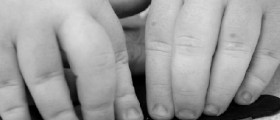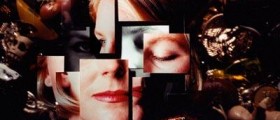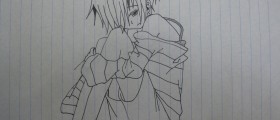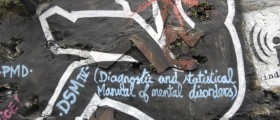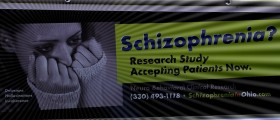There's an old saying that if you are aware of yourself enough to wonder whether you have schizophrenia, you probably don't. The hallmark symptom of schizophrenia is delusion, which is a fixed false belief. If you see Superman in the mirror when you get up in the morning and you say to yourself, "Wow, that's nuts," then you may be suffering a hallucination. You may be seeing something that isn't there. If you see Superman in the mirror when you get up in the morning and you say to yourself, "Rats, I forgot to pick up my cape at the cleaners," you may be suffering a delusion, which is a symptom of schizophrenia.

Delusion, however, isn't the only symptom of schizophrenia. Usually delusions come with disorganized speech and behavior. One schizophrenic man I knew would get up in the morning and just not know what to do next. Should he put on his clothes? Should he light a cigarette? Should he start the car and then put on his clothes and then take a shower? He was paralyzed with indecision. He also was unable to ask for help.
People who have schizophrenia usually aren't rage-aholics. They don't get angry a lot. They are more likely to become depressed. They don't have a wide range of emotions. Usually it will be depression, more depression, and more depression.
- Delusional disorder. Let's suppose that you are convinced that the President of the United States is an extraterrestrial. You spent all your free time posting links to articles on Facebook about how she was educated by the KGB on Mars, and when you aren't online, you are going from house to house handling out aluminum foil hats to protect your neighbors from Congressional mind control techniques. However, you have a job and do good work, you don't threaten anyone, you take out the trash, you flush the toilet, you change your clothes, you pay your library fines, you are a functional person. In this case you probably aren't schizophrenic. You probably have a delusional disorder.
- Schizoid personality disorder. Let's suppose you are a normal person except you just don't like to spend any time at all around other people. You can't form relationships. You have difficulty with even simple social interactions, like buying a cheeseburger or asking directions. In this case, you probably aren't schizophrenic, but you might have a schizoid personality disorder.
- Borderline personality disorder. In contrast, suppose you have a "clinging vine" type of personality. You latch on to a new friend like you would never have another one, and you become extremely anxious when you are apart. Finally, you just can't bear your "abandonment" and you explode in anger, ending the relationship. This leaves you even more desperate for a new friend. You might suffer a borderline personality disorder, but not schizophrenia.
- Paranoid personality disorder. Some people just don't trust anyone. They don't suffer delusions, for instance, they don't suppose the man behind the fish counter at the supermarket is really an agent of the Martians in the White House, but they simply cannot put their faith in anyone. There's an old saying "Just because you're paranoid doesn't mean everyone isn't out to get you," but there is a possibility not of full-blown schizophrenia but rather paranoid personality disorder.
- Bipolar disorder. Some people have major mood swings from sad to elated, but don't lose touch with the "real world." Bipolar disorder is not a form of schizophrenia.
A variety of non-psychiatric diseases can cause temporary symptoms that mimic schizophrenia. Among them are delirium (which can occur when you are in jail or an intensive care unit), certain kinds of infections, vitamin B12 or folic acid deficiencies, and brain injuries.
- Olabi B, Ellison-Wright I, McIntosh AM, et al. Are there progressive brain changes in schizophrenia? A meta-analysis of structural magnetic resonance imaging studies. Biol Psychiatry. 2011 Jul 1. 70(1):88-96.
- Photo courtesy of SteadyHealth


